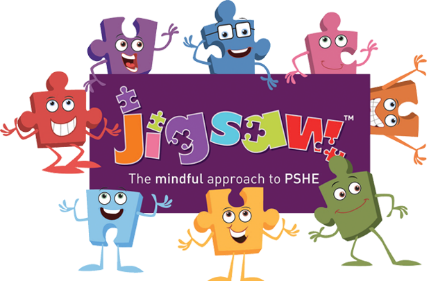Address:
William Patten Primary School
Stoke Newington Church Street
London N16 0NX
Office Manager: Rita Quigley
SENDCo: Caitlin Shaw
William Patten Primary School
Stoke Newington Church Street
London N16 0NX
Office Manager: Rita Quigley
SENDCo: Caitlin Shaw

Jigsaw is a whole-school approach and embodies a positive philosophy and creative teaching and learning activities to nurture children’s development as compassionate and well-rounded human beings as well as building their capacity to learn. It is a comprehensive and completely original PSHE Education programme (lesson plans and teaching resources) for the whole primary school from ages 3-11 (12 in Scotland). Written by teacher and psychotherapist, Jan Lever MBE (services to education) and teachers, and grounded in sound psychology, it also includes all the statutory requirements for Relationships and Health Education, and Sex Education is also included in the Changing Me Puzzle (unit).
Jigsaw has two main aims for all children:
Jigsaw brings together PSHE Education, compulsory Relationships and Health Education, emotional literacy, mindfulness, social skills and spiritual development. It is designed as a whole school approach, with all year groups working on the same theme (Puzzle) at the same time at their own level. There are six Puzzles (half-term units of work) and each year group is taught one lesson per week. All lessons are delivered in an age-and stage-appropriate way so that they meet children’s needs.
What will Jigsaw teach my child?
The overview below summarises the content in each of Jigsaw’s units of work (Puzzles):
Being Me in My World covers a wide range of topics, including a sense of belonging, welcoming others and being part of a school community, a wider community, and a global community; it also looks at children’s rights and responsibilities, working and socialising with others, and pupil voice.
Celebrating Difference focuses on similarities and differences and teaches about diversity, such as disability, racism, power, friendships, and conflict; children learn to accept everyone’s right to ‘difference’, and most year groups explore the concept of ‘normality’. Anti-bullying, including cyber and homophobic bullying, is an important aspect of this Puzzle.
Dreams and Goals aims to help children think about their hopes and dreams, goals for success, what their personal strengths are, and how to overcome challenges, using team-work skills and tasks. There is also a focus on enterprise and fundraising. Children learn about experiencing and managing feelings of pride, ambition, disappointment, success; and they get to share their aspirations, the dreams and goals of others in different cultures/countries, and their dreams for their community and the world.
Healthy Me covers two main areas of health: Emotional/mental health (relaxation, being safe, friendships, mental health skills, body image, relationships with food, managing stress) and Physical health (eating a balanced diet, physical activity, rest and relaxation, keeping clean, drugs and alcohol, being safe, first aid). Most of the statutory content for Health Education (DfE) is contained within this Puzzle.
Relationships starts with building a respectful relationship with self and covers topics including families, friendships, pets and animals, and love and loss. A vital part of this Puzzle is about safeguarding and keeping children safe; this links to online safety and social networking. Children learn how to deal with conflict, build assertiveness skills, and identify their own strengths and strategies for building self-esteem and resilience. They explore roles and responsibilities in families and friendship groups, and consider stereotypes.
Changing Me deals with change of many types, from growing from young to old, becoming a teenager, assertiveness, puberty, self-respect and safeguarding. Each year group thinks about looking ahead, moving year groups or the transition to secondary school and how to cope positively with such changes. Life cycles and human reproduction are taught in some year groups at the school’s discretion. Jigsaw has produced a separate leaflet explaining the approach taken with Relationships and Sex Education. Your child’s school can make this available to you on request.
For more information, please click the links below:
Introductory Guide for Parents and Carers about Jigsaw Ages 3-11
Guide for Parents and Carers about Relationships and Sex Education in Jigsaw
Guide for Parents and Carers – What does Jigsaw teach about LGBTQ+ relationships